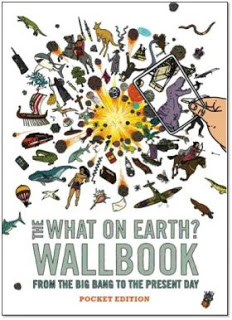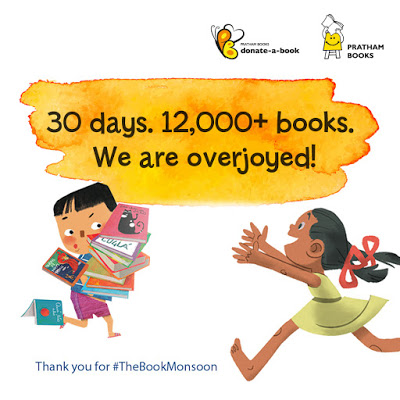The What on Earth? Wallbook

The What on Earth? Wallbook – Pocket Edition – tells the complete story of planet, life and people from the beginning of time to the present day. This versatile pocket edition includes a magnifying glass allowing younger readers to explore, discover and learn about natural and human history for themselves in a fun, innovative and engaging format. On the back is a 100-question multiple-choice family world history quiz – the answers can all be found somewhere on the timeline (but only if you look carefully enough!).
Christopher Middleton finds a new ‘book’ delivers the big picture of the past. “Suddenly I had the idea of trying to tell the entire history of the world on a single piece of paper.”The result is The What on Earth? Wallbook, a 7-foot, six-inch-long chart, which starts out some four billion years ago, with the explosion that triggered the Earth’s birth, and ends just a matter of months ago, with the election of Barack Obama and the global credit crunch.It’s a feat not just of historical and scientific fact-marshalling, but of sheer stationery logistics, too.“The only way I could get started was by sticking 16 pieces of A4 paper together and laying them on the floor,” Lloyd says. “My aim was to join up human history with natural history, and demonstrate the interaction between them; to present the big picture that we so often fail to see, because school subjects are taught in such a compartmentalised way.“And rather than writing a great, long 180,000-word book on the subject, I wanted to create something that people could dip in and out of.”The result is a truly impressive example of information deployment, in which the reader is presented with a chronological record of all the most significant events in the Earth’s history. Such is the cleverness of the layout, though, that at any one point in the story you can see what was happening at the same time elsewhere on the planet.So, while hunter-gatherers in North America were starting to use stone tools, Confucius was on a round-China philosophy lecture tour; Carthage was growing rich from trade in slaves and animal skins; Celts were spreading throughout Europe; and Mayans were making high-quality pots and figurines in South America.Meanwhile, a whole host of other, less human-powered happenings are documented in a series of parallel sections on the chart, entitled “Land, Sky, Sea and Earth”. As well as full-on floods, plagues and other cataclysms, space is also found for more unusual observations: the 20th-century explosion of the rabbit population in Australia (500 million), or the 14th-century Inca postal system, whereby runners were stationed every five miles along key routes, to carry messages encoded in rope knots, or quipu.In all, then, this wall chart counts as a truly epic undertaking, in terms of layout, typography, design and sheer scale of ambition. Even the timescale has been drawn up according to strict mathematical guidelines; in the first section of the chart, 1centimetre equates to one billion years, in the second section it’s 250 million years and by the very final section it’s just five years.






